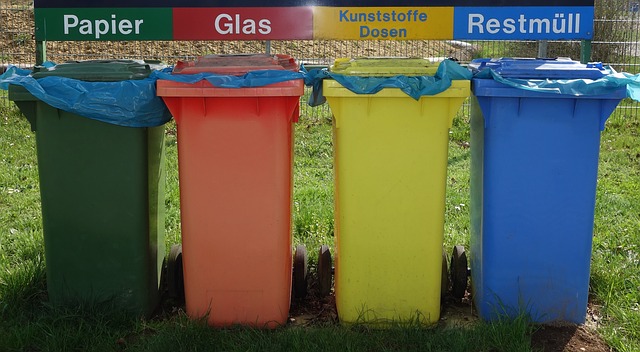Last Updated on: 22nd November 2023, 11:51 am
Lockdown = less pollution
“Nature is healing” has been one of the much-repeated themes from the lockdown, mainly because it’s true – human impact on the environment has significantly reduced this year.
With global carbon dioxide emissions for 2020 expected to fall by up to 8% due to global shutdowns*, some organisations are calling for annual lockdowns for the sake of the planet.
Waste management company (and environmental campaigners) BusinessWaste.co.uk say governments should consider an annual month-long environmental lockdown to try to help reverse the destruction caused by man-made climate change.
“The Covid-19 global pandemic has been challenging for everyone around the world, but if we can take anything positive from it, it has to be the enormous drop in pollution levels around the world,” says company spokesman Mark Hall.
“We’ve had wildlife returning to populated areas, increased recycling, fewer emissions from vehicles – and all we had to do was stay at home.”
Return to the wild
Although most of us were holding up in our homes and keeping safe from Coronavirus, the outside world was flourishing due to reduced human impact through fewer emissions from transportation and less rubbish being generated.
Pollution has decreased all over the world due to people being asked to stay at home in response to the pandemic, but with fewer cars on the road and planes in the air we are seeing smog clearing up in big cities, and clearer water in places like Venice and Hawaii.
People living in Northern India were able to see the Himalayan mountains for the first time in their lifetimes, due to the drop in air pollution as a result of the country’s lockdown measures.**
Hall: “The environment is thriving due to less air pollution from humans, and less commercial waste is being produced because a lot of businesses have had to close their doors – which is great news because it’s given the planet a bit of a break from the constant overflowing waste”.
In the UK, the amount of household recycling being processed has increased by 30% during the lockdown period, including an 80% increase in plastic recycling in May.***
And there are reports of wildlife taking back human spaces all over the world, with goats descending from the hills into the seaside town of Llandudno in Wales, and wild boar roaming the streets of Barcelona.****
This is why BusinessWaste.co.uk are calling for a month-long lockdown once a year, where people are asked to stay and work from home and travel restrictions worldwide so that nature has an annual cooling-off period to rejuvenate itself.
Hall: “Although Covid-19 has been devastating to humans, we cannot deny that the lockdowns all over the world have helped to encourage the environment to thrive, so having an annual lockdown period would have huge benefits for the planet.”
Will this be enough to save the world?
The idea of an annual lockdown may seem disheartening to many, but as it won’t be for medical purposes there will be fewer restrictions on seeing and being in close contact with loved ones, as the primary focus will be to globally restrict movement and waste.
“We could promote it as a ‘work from home month’ type thing, where businesses shut up shop and people get to spend time at home with their families. This will be beneficial for both the planet and the mental health of workers who feel they don’t spend enough time at home,” says Hall.
But as the current pandemic lockdown has shown, there have been some environmental issues that have occurred due to the lack of human intervention.
In Kenya there has been an increase in ivory poaching, and in the UK birds’ eggs have been eaten by rats, both occurring due to the absence of conservationists to protect them. *****
BusinessWaste.co.uk has identified these issues surrounding an annual lockdown plan and says that there would have to be measures drawn up to allow for local volunteers to undertake vital conservation work, as sometimes nature needs a helping hand to thrive.
“There also needs to be a balance, we cannot rely on the idea that a month off each year will fix the problem, we will need to make sure that for the other 11 months we are still doing as much as we can for the environment such as reducing emissions and increasing recycling,” says company spokesman Mark Hall.
“But if the last few months are anything to go by, nature can bounce back if we give it a chance.”







